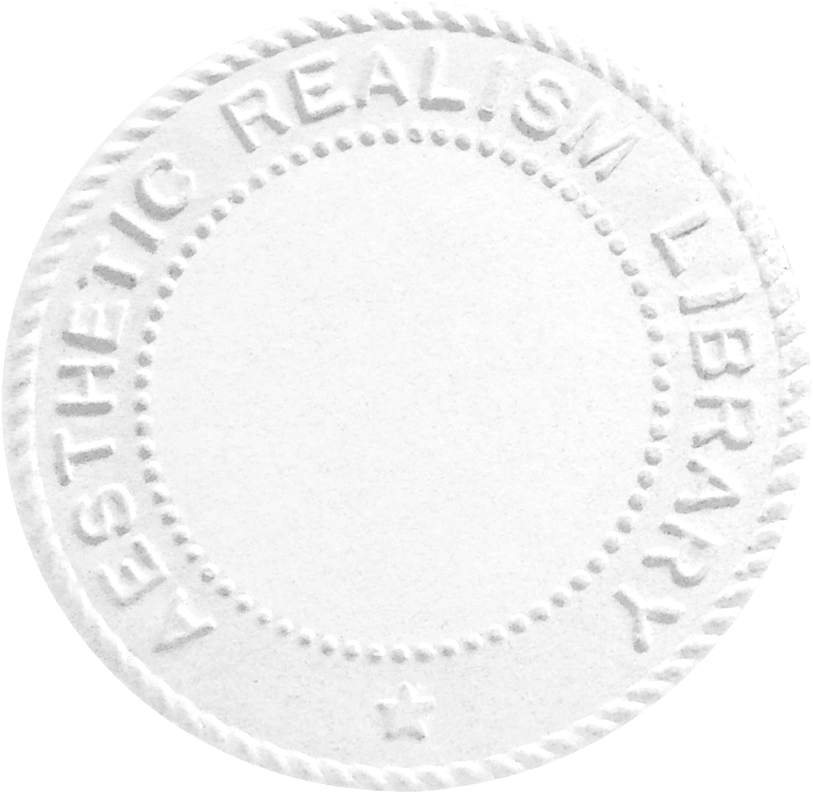From The Critical Muse: Imperative Aesthetic Realism Illustrations
© 1974 by Aesthetic Realism Foundation
The Clod and the Pebble
“Love seeketh not itself to please,
Nor for itself hath any care,
But for another gives its ease,
And builds a Heaven in Hell’s despair.”
So sung a little Clod of Clay,
Trodden with the cattle’s feet,
But a Pebble of the brook
Warbled out these metres meet:
“Love seeketh only Self to please,
To bind another to its delight,
Joys in another’s loss of ease,
And builds a Hell in Heaven’s despite.”
—William Blake
The Complete Writings of William Blake, ed. Geoffrey Keynes
(London: Oxford University Press, 1966), p.211.



Comment by Eli Siegel on “The Clod and the Pebble”
“The Clod and the Pebble” of Blake states that love, like self, is the most and least selfish thing on earth, or away from earth. The Clod stands for that in us which wishes to be annulled by the tramplings and piercings of the world; the Pebble for that which wishes to resist in hardness, unyieldingness, defiant rotundity and elliptical autonomy. The Clod and the Pebble are both correct, but their seeming difference can frighten—as it should. Anyway, sex, love, marriage, affection, have been the field of strategic ferocity and of dissolving meekness in a way to make hectic and bewilder any society, or any individual therein. We should listen closely to the Clod and the Pebble, and then see if we can arrange a deal that is honest, with the probity of aesthetics within the deal.